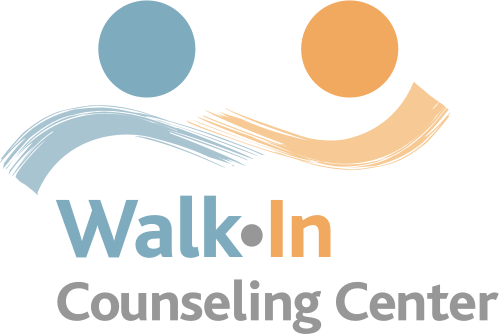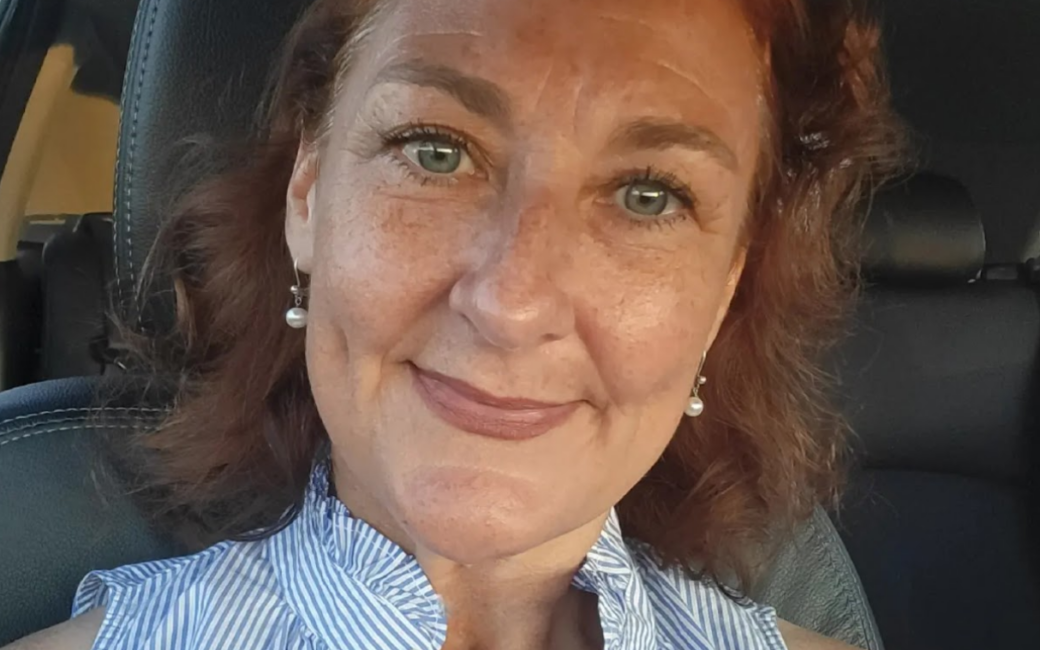For each Spanish speaker seeking help at Walk-In Counseling Center, Rebecca L. offers a warm and welcoming presence – and a wealth of counseling experience.
With an LPCC counseling license and Spanish honed by 3 ½ years in the Dominican Republic with the Peace Corps, Rebecca is committed to helping all Walk-in clients, particularly those with the extra barrier of language, in addition to cultural factors that may be entwined with other challenges in seeking mental health support.
“In the Dominican Republic, people with disabilities or mental health issues were sometimes housed in a back room of the family home, or they were perceived as someone who had experienced ‘the evil eye.’ There was a lot of stigma around mental illness,” she recalls.
Rebecca started her counseling career at CLUES, an organization that supports Spanish-speaking Minnesotans. There was often a lengthy wait for counseling there because there was so much need, she recalls. She first heard about Walk-In due to searching for additional therapy resources for these individuals.
“Some of our clients [at CLUES] were undocumented or unable to afford a sliding-scale fee for counseling, so they didn’t have access to care. That’s one of the reasons why Walk-In is so important to the community.”
Since 2016, Rebecca has been serving Spanish-speaking clients at Walk-In as a counselor and leading a clinic team as a team consultant. Despite her current busy schedule in private practice and teaching at the graduate level in the counseling and psychology program at St. Mary’s University, she considers her volunteer time at Walk-In “…a gift I give to myself.”
Some clients who came to Walk-In during the closed-down periods of the pandemic felt the isolation acutely, or were dealing with disruptions caused by COVID. One Spanish-speaking couple came to Walk-In (virtually) for help learning how to be the sole emotional support for each other during that isolating time.
Also during that time, a woman came for counseling after a relationship ended. “I was able to hold space for her to feel the grief and loss, and to know that it was ‘normal’ to experience sadness and fear. I reflected back to her strengths she possessed that she had gained over time — but which she had a hard time remembering while feeling distressed.”
Another client was a male who was struggling within his peer group that teased him excessively, which was a cultural norm but which felt humiliating to the point that he experienced it as acutely hurtful. “He received a safe place to express the emotions he felt without judgment, allowing him to consider and practice ways to respond to his friends’ behaviors that felt authentic to him.”
Walk-In clients often are facing multiple issues at the same time, along with immigrant status or other barriers to receiving counseling. These factors are part of what makes counseling at Walk-In a special experience.
“There is a difference to it,” Rebecca says of her counseling at Walk-In. “We are helping people stay tied to this world when they feel challenged. It allows us to assure each person that they don’t have to do this alone, and to learn of resources and systems here that they might not be able to (or want to) access in their country of origin, as those same systems in another country could pose a threat to them.”
Being able to help is what keeps Rebecca coming back. “I feel privileged and grateful to do this work,” she says.

